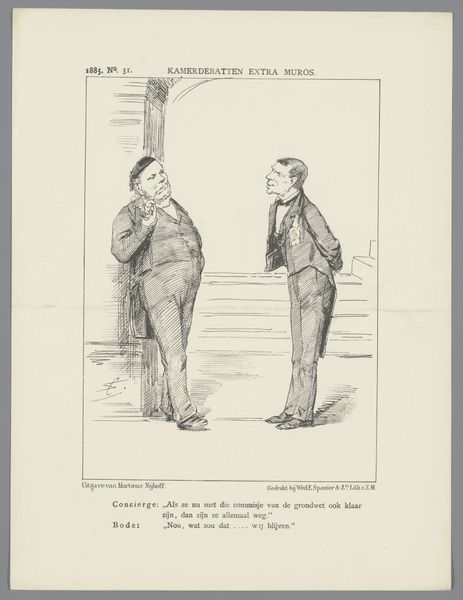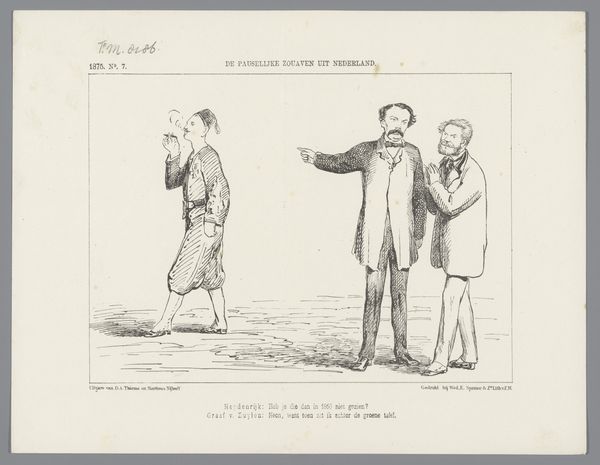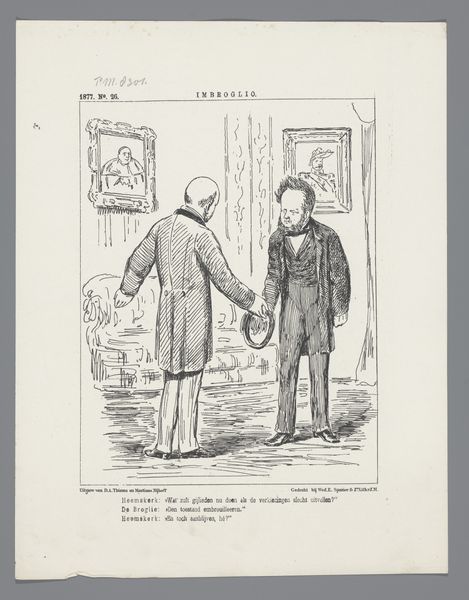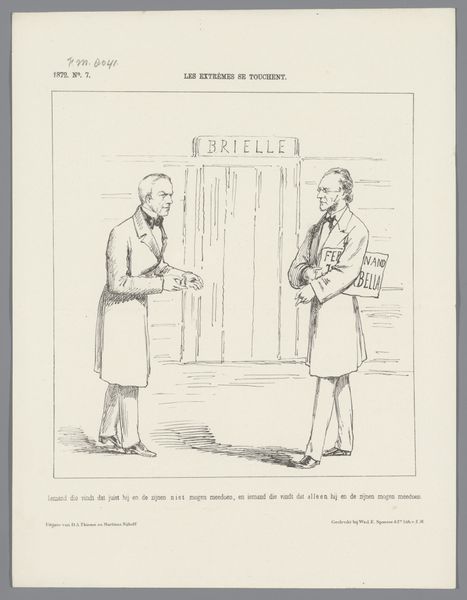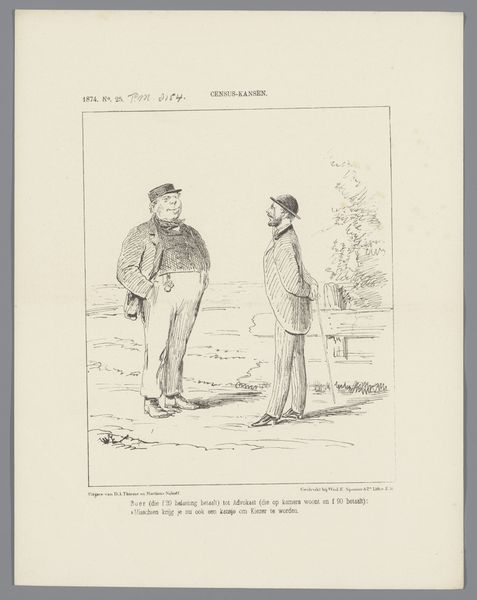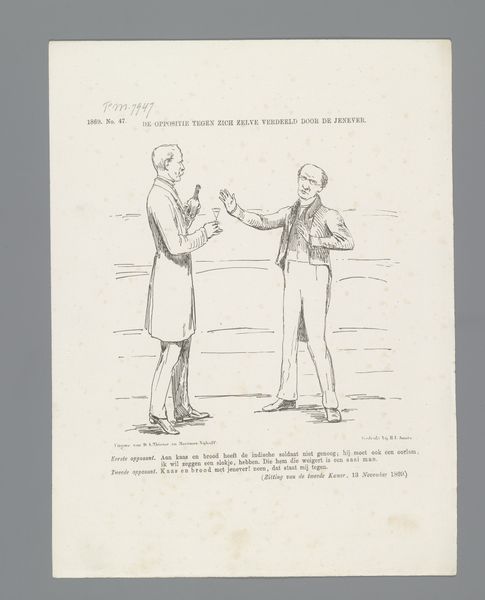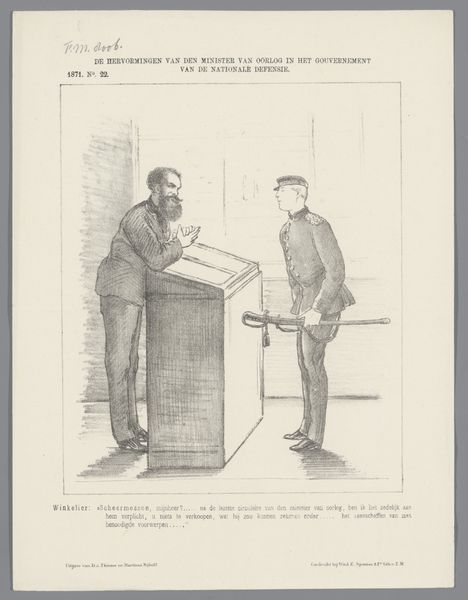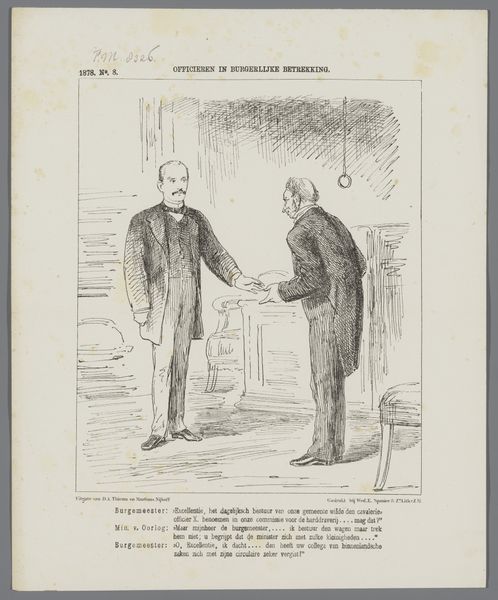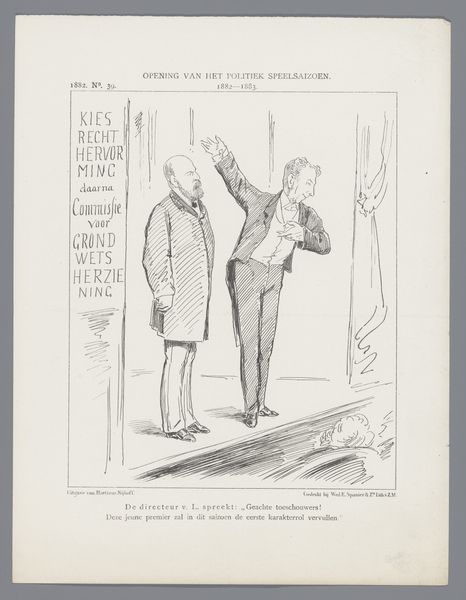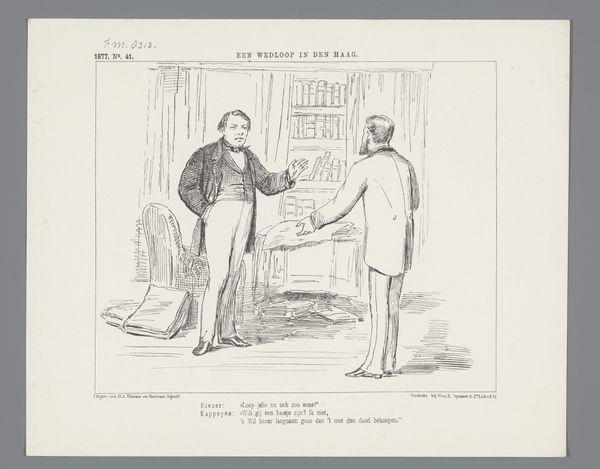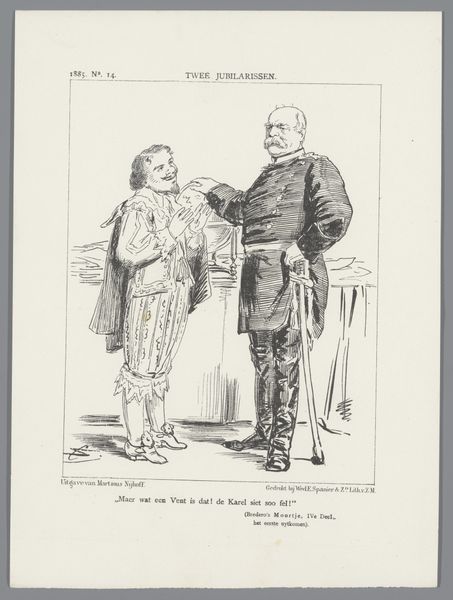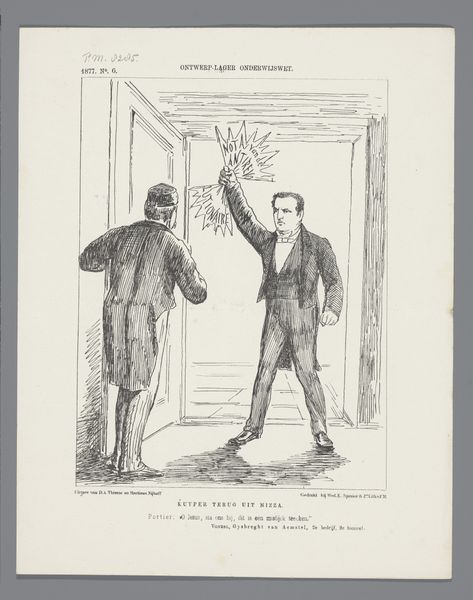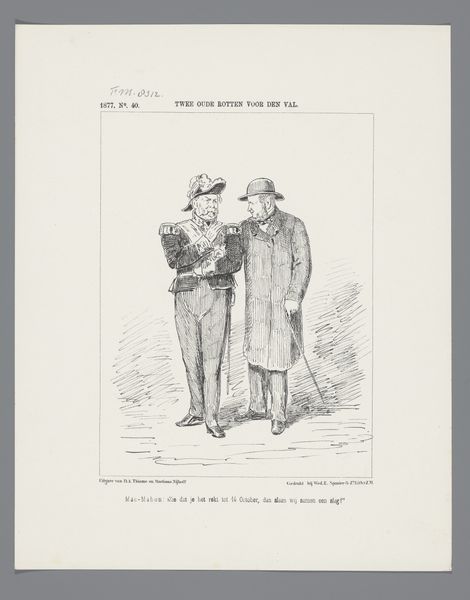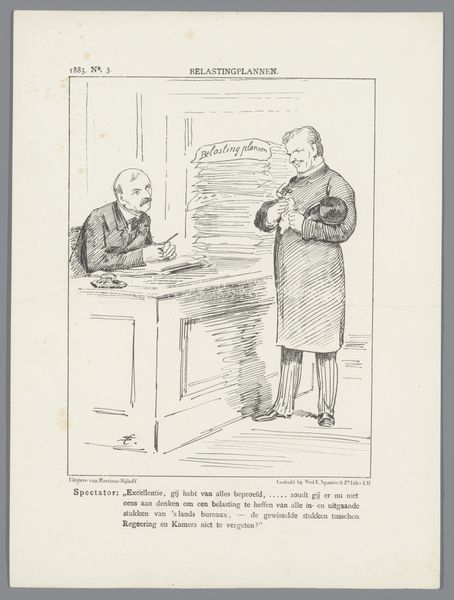
drawing, print, engraving
#
portrait
#
drawing
#
aged paper
#
pale palette
# print
#
caricature
#
flat design on paper
#
light coloured
#
sketch book
#
personal journal design
#
personal sketchbook
#
sketchbook drawing
#
genre-painting
#
storyboard and sketchbook work
#
sketchbook art
#
engraving
Dimensions: height 275 mm, width 215 mm
Copyright: Rijks Museum: Open Domain
Editor: So, this is "Spotprent op Mac-Mahon en Heemskerk," a print made in 1877 by Johan Michael Schmidt Crans. The drawing seems pretty simple, almost like something you’d see in a political pamphlet. It’s all lines and shading; there isn't much detail or depth to it. How would you interpret this piece, particularly its use of printmaking as a medium for what appears to be social commentary? Curator: Consider the means of production. As a print, it inherently lends itself to mass dissemination. It invites a wider audience compared to a unique drawing. Note how the caricature style relies on economy of line; it had to be reproducible, fast. Editor: That's true; I hadn't considered how quickly these could have been made. Does the material itself – paper and ink – influence its message, aside from ease of production? Curator: Absolutely. Think about paper’s role in distributing information. Here, the choice speaks to ephemerality and circulation. It’s a comment *on* circulation of news itself and political discourse more broadly. Are we meant to treat what’s portrayed here as disposable, or retain a piece of its narrative? Also, consider the skill of the printmaker: were they also the designer? How much labour went into the creation and distribution? Editor: I suppose that considering how these were produced, circulated, and consumed back then changes how we understand it. I was mostly focused on what the drawing *depicts.* Curator: Focusing on labor and access reshapes our understanding; print as accessible cultural product versus privileged, singular image, and even the relationship between artwork and the public in a democracy. Editor: This definitely makes me want to look into the process and background further rather than focusing just on the imagery. Thank you!
Comments
No comments
Be the first to comment and join the conversation on the ultimate creative platform.
